John Arnold is widely regarded as the greatest natural gas trader of all time, but in his late 30’s he walked away from it all and turned full-time philanthropist. He and his wife have committed to strategically give away most of their vast fortune in their lifetime and are already doing so at a staggering pace of nearly a half billion dollars a year. In this episode, John explains his quest to address the most challenging social programs plaguing the country, including criminal justice, health care policy, and K-12 education. John also shares self-identified attributes that contributed to his success in natural gas trading and how those same traits have translated to his philanthropic aspirations.
Subscribe on: APPLE PODCASTS | RSS | GOOGLE | OVERCAST | STITCHER
We discuss:
- John’s background, upbringing, and early entrepreneurial tendencies [3:50];
- John’s time and rise at Enron [16:45];
- Characteristics that made John an exceptional natural gas trader and how they translate to his philanthropic work [27:30];
- The collapse of Enron [35:00];
- The success of John’s hedge fund, and his early interest in philanthropy [40:30];
- The infamous 2006 trade that brought down Amaranth Advisors [55:45];
- John’s analytical prowess and emphasis on fundamentals [1:02:15];
- The decision to become a full-time philanthropist and the founding of Arnold Ventures [1:09:00];
- Education—John’s quest to fundamentally change K-12 education [1:18:45];
- Strategic philanthropy—preventing problems by attacking root causes and creating structural change [1:24:30];
- The criminal justice system—structural changes needed to address mass incarceration, policing practices, and recidivism [1:31:45];
- Re-imagining prisons to reduce recidivism [1:49:00];
- US health care policy—John’s focus on drug prices, and the severe consequences of not making system changes [1:56:15];
- Climate change—the bipartisan role of John’s foundation [2:13:45];
- Advice for young adults interested in philanthropy [2:17:45]; and
- More
John’s background, upbringing, and early entrepreneurial tendencies [3:50]
Who is John?
- He’s an “equal opportunity special interest pot stirrer”
Figure 1. An equal opportunity special interest pot stirrer. Image credit: Twitter – @JohnArnoldFndtn
- John and his foundation get major flack from both the left and the right politically (Therefore, the issues he attempts to zoom in to are ones where the left and the right are starting to come together)
- Prior to the foundation, John made his fortune as a natural gas trader
Arnold Ventures
- Arnold Ventures, the foundation founded by John and his wife Laura, is currently focusing mostly on health policy, public finance platforms, and criminal justice
- Foundation gives about 400 million away each year
“Our philanthropic intent is to give away the vast majority of our money during our lifetime.”
An entrepreneur from a young age
- John was an entrepreneur and an aspiring businessman starting as a young kid
- At 12 he mowed lawns but realized not much money and too much competition
- Started selling sports cards at age 14
- With the trading card work, he basically figured out geographical areas of arbitrage within the trading card industry and created a business out of it
“I ended up spending a couple summers just full time on this baseball card, really geographic arbitrage and information arbitrage, that I would have a sense of who the best buyer was for every product.”
Defining arbitrage—
- “I would describe arbitrage as taking advantage of price differences with little to no risk.”
- Today with the internet, a lot of that arbitrage and pricing inefficiencies have gone away or have been, what’s called in the trade, “Arbed out”
What he wanted to do after college
“I was the guy that was trying to get out of there and into the game as quickly as possible. Every day I was at college, it was one less day that I had to be in the game.”
- From a young age, John knew he wanted to be in Wall Street
- He didn’t know much about it, but he felt like it was the “biggest game around”
- The books Liar’s Poker as well as Barbarians at the Gate intensified his interest
- During college, he was focused on getting out of there and into the game as quickly as possible
- Despite not being recruited heavily, he talked his way into an interview at Enron and was offered an analyst position
John’s time and rise at Enron [16:45]
- John arrived at Enron in 1995, before it was all that well-known
- Historically, Enron was a pipeline company
- The natural gas industry was regulated heavily until 1992 when it became deregulated
{end of show notes preview}
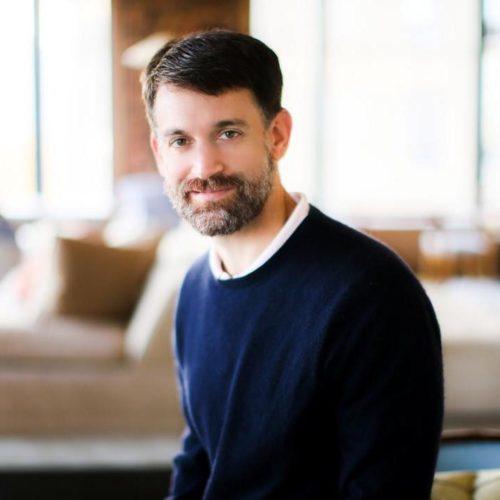
John Arnold
John Arnold is an American billionaire, former hedge fund manager, and is widely regarded as the most successful natural gas trader of all time. Since retiring from energy trading in 2012, John now focuses on his political activism through Arnold Ventures LLC.



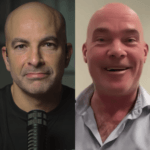
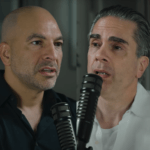
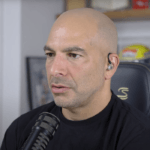
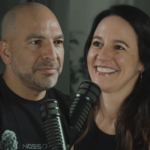
Hi Peter, this is a note of encouragement, follower insight, and gratitude.
Firstly, I strongly encourage you to continue your push forward, through and against the current/rising tide/perceived limits… and delve into any and all areas of scientific and personal discovery, that we might learn how to live 120, 150, 200 years, AND… to do so with our heart, mind and soul intact, as well as our bodies.
As an ardent follower and promoter of you and your work, I highly recommend that you look into the work of scientist, Dr. Francis Collins, M.D. — a man pursuing his Ph.D. in theoretical quantum & statistical mechanics, who switched to medical school just before completing his Ph.D. — who was eventually tasked by POTUS to lead the Human Genome Project. He is now Director of the NIH, and I had the honor and privilege of meeting and talking with him during a three day stem cell conference at the Vatican. Dr. Collin’s journey — from being an agnostic, to then learning he was actually an atheist, and eventually discovering that God is real and so very evident as he and his team unlocked the 3 billion letters long code of our DNA carried within each cell — is well laid out in his book, “The Language of God” and certainly not to be dismissed by anyone in the honest pursuit of ‘Veritas at all cost.’ (How’s that for “follower insight”? 😀 )
Though a layman, I want to end by saying ‘thank you’ for the breadth and depth of your topics, and your honest, scientific approach to so many areas of science and humanity.
Learning about the areas where John Arnold focuses his philanthropy, I’d love to have you do a podcast with someone knowledgeable about how social policy researchers’ takes on “Wicked Problems” might be creatively woven into philanthropic work.
I loved the podcast with John Arnold, as both the discussion about his career as well as his philanthropy was so helpful.
One question you could have asked about when discussing criminal justice with John: isn’t it true that up to 85% of the prison population suffer from substance use and mental health disorders? If so, doesn’t our society’s proclivity of putting these “problem people” in prison as opposed to engaging them in treatment need to be addressed? How about this for a follow-up question: shouldn’t addiction and mental health treatment programs be part of any plan for prisons to reduce recidivism?
Really enjoyed the conversation. Great to have talented folks like him motivated to take on such difficult issues.
Regarding plea bargaining, I would be curious about his, or your thoughts about how often innocent folks plead guilty given the risk of an adverse jury decision. My impression is that given the “supply” constraints on the judicial system, prosecutors are encouraged to use plea deals, which necessitates the threat of an outsized penalty if taken to trial. Not gumming up the system is the reward that guilty folks get for taking the deal. I’m thinking of the recent Varsity Blues cases where I think most everyone so far has pleaded guilty and taken a plea bargain.
Thank you.